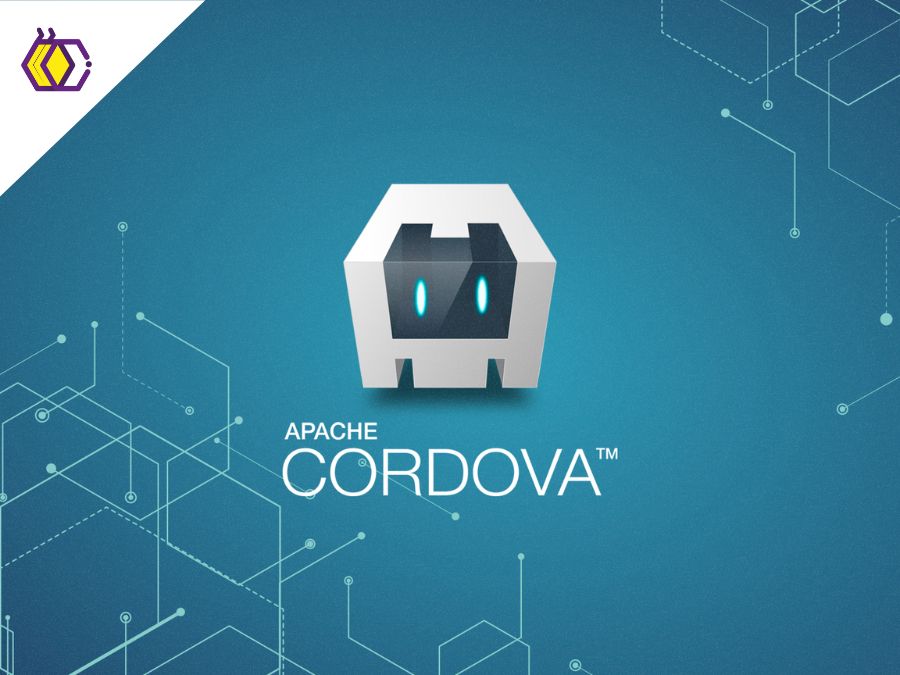

Apache Cordova
(9 minutes of reading) In recent years, there has been an exponential increase in the demand for mobile apps, both for Android and iOS devices. However, developing native apps for each of these platforms can be a laborious and time-consuming process. It was in this context that Apache Cordova emerged as an effective solution for cross-platform mobile application development. In this article, we'll explore what Apache Cordova is, its history, features, benefits, and usage examples. WHAT IS APACHE CORDOVA? Apache Cordova, formerly known as PhoneGap, is an open-source mobile application development framework. The framework allows you to create mobile applications using standard web technologies such as HTML, CSS and JavaScript and package them in native containers for different mobile platforms such as Android, iOS, and Windows Phone. With Cordova, developers can build applications once and deploy them to multiple platforms, avoiding the need to develop the same application multiple times for each specific platform. HISTORY OF APACHE CORDOVA The history of Apache Cordova dates to the launch of PhoneGap by Nitobi Software in 2008. At that time, mobile app development was still in its early stages, and most apps were developed natively for each platform, which required knowledge in different programming languages and specific APIs. PhoneGap was launched as a solution to this problem, allowing developers to use standard web technologies such as HTML, CSS, and JavaScript to create cross-platform mobile apps. PhoneGap's innovative approach soon caught the attention of the developer community and quickly gained popularity. In 2011, Adobe Systems acquired PhoneGap and integrated it into its product suite. Adobe saw the potential of PhoneGap to facilitate cross-platform mobile app development and expand its reach into the developer community. However, to promote the project's open governance and collaboration, Adobe decided to donate PhoneGap to the Apache Software Foundation in 2011. The project was accepted and renamed Apache Cordova, in reference to a famous geographical location in Spain called Cordova. This transfer to the Apache Software Foundation was significant as Cordova became an open-source project, under the Apache license, and developed and maintained by the community. This allowed developers from all over the world to contribute to the continuous improvement of the framework and share their knowledge and resources. Since then, Apache Cordova has continued to evolve and attract an active community of developers, with regular releases and significant enhancements. The Cordova community works closely to add features, fix bugs, and keep the framework up to date with the latest trends and market requirements. FEATURES OF APACHE CORDOVA As we can see, Apache Cordova is an open-source mobile application development framework. Whether you're building a simple application or a complex one with advanced functionality, Apache Cordova provides a variety of tools and features that make the process easier and more efficient. From its robust plug-in architecture to its ability to seamlessly support multiple platforms, there are many reasons why Apache Cordova has become the preferred choice of many application developers around the world. Next, we'll explore the main features of Apache Cordova and how they can benefit application developers. A) DEVELOPMENT BASED ON WEB TECHNOLOGY Cordova allows developers to use existing HTML, CSS, and JavaScript skills to build mobile apps, without needing to learn native programming languages. This is especially beneficial for web developers who want to expand into mobile development. B) ACCESS TO NATIVE RESOURCES Although Cordova apps are based on web technologies, they have access to native device features such as camera, accelerometer, contacts, and more through JavaScript APIs provided by Cordova. This capability allows applications developed with Cordova to have functionality like native applications. C) MULTIPLATFORM DEPLOYMENT With Cordova, you can build a single app and deploy it to multiple mobile platforms, saving development time and effort. This means that developers can reach a wider audience without having to rewrite application code for each specific platform. D) EXTENSIBILITY Cordova allows you to extend the functionality of the application through plugins. There are plugins available for a wide range of features like push notifications, geolocation, local storage, and integration with popular services. Developers can also create their own plugins to meet specific application needs. BENEFITS OF APACHE CORDOVA Apache Cordova offers several significant benefits for mobile application developers. Below are some of the main benefits of Cordova: 1) EFFICIENT DEVELOPMENT Cordova allows developers to quickly build mobile apps using their skills in web technologies. Instead of learning native programming languages and developing separate apps for each platform, they can focus on creating a consistent, high-quality experience using the technologies they already know. This reduces development time and associated costs. 2) CODE REUSE With Cordova, you can write code once and use it on multiple mobile platforms. This reduces duplication of effort and makes the application easier to maintain. Developers can create a common codebase and implement the necessary customizations for each specific platform. This not only saves time, but also makes it easier to fix bugs and add new features. 3) ACCESS TO NATIVE RESOURCES Although Cordova apps are based on web technologies, they have access to native device capabilities. This allows you to create feature-rich applications that take advantage of the capabilities of mobile devices. For example, a camera app built with Cordova can use the native camera API to take photos, access the photo gallery, and apply filters. This provides a more immersive and native user experience, even if the application is built using web technologies. 4) ACTIVE COMMUNITY Cordova is an open-source project with an active community of developers. This means that there are many resources available, such as documentation, tutorials, and plugins, as well as community support. The Cordova community is engaged and collaborative, sharing knowledge, solving problems, and keeping the framework up to date. This makes Cordova a reliable choice for mobile app development. EXAMPLES OF USE OF APACHE CORDOVA Cordova has been used in a variety of popular mobile applications. Some notable examples include: Untappd: An app for beer lovers that lets you discover, rate, and share beers with friends. Untappd is built with Cordova to provide cross-platform experience and access features such as geolocation, camera, and push notifications. FanReact: An app that allows sports fans to interact during games, share photos and videos, and earn points. FanReact leverages Cordova to create a consistent experience across platforms and leverage native features such as camera and geolocation. TripCase: A travel management app that helps travelers organize itineraries, receive flight alerts, and share information with other travelers. TripCase uses Cordova to develop a cross-platform application that integrates with airline and hotel services, offering a complete experience for users. CONCLUSION Apache Cordova is a powerful solution for cross-platform mobile application development. Based on standard web technologies, it allows developers to build applications using existing HTML, CSS, and JavaScript skills. With the ability to access native device capabilities and deploy across multiple platforms, Cordova provides efficiency, code reuse, and access to an active community of developers. If you're looking to efficiently develop cross-platform mobile apps, Apache Cordova is a technology to consider. With Cordova, you can take full advantage of web technologies to create feature-rich applications that can be deployed across platforms, reaching a wider audience and reducing development time and costs. Therefore, Cordova is a solid choice for developers who want to build high-quality and efficient mobile apps. And there? What do you think of our content? Be sure to follow us on social media to stay up to date!
Share this article on your social networks:
Rate this article:
[yasr_visitor_votes size=”medium”]



